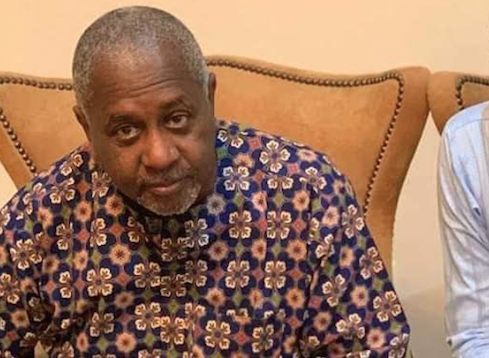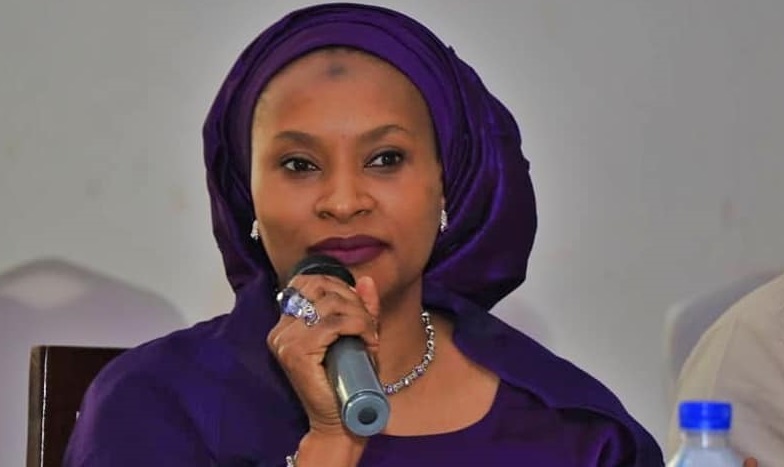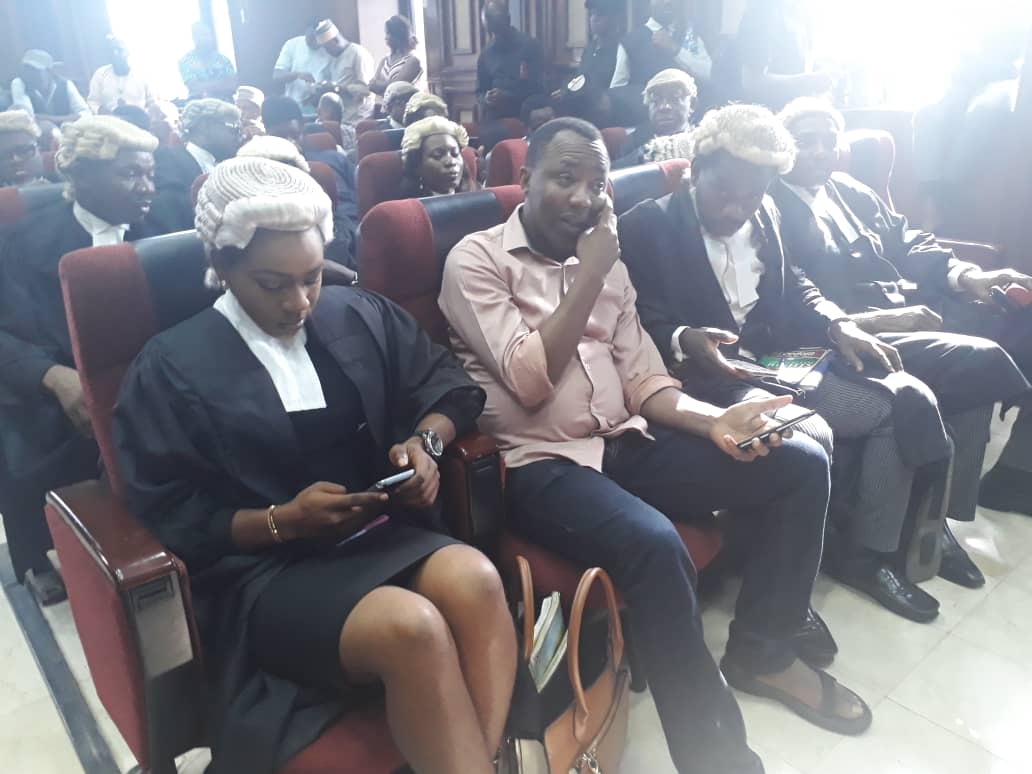The Tuesday December 24 2019 release from detention of both the former National Security Adviser Colonel Sambo Dasuki (rtd) and publisher of Sahara Reporters Omoyele Sowore came unexpectedly. A terse press release from the Office of the Attorney General of the Federation Abubakar Malami said the decision to release both men was in compliance with the bail granted to them by different courts. Better be late than never, one would say.
It should be recalled that Dasuki, who served as national security adviser under President Goodluck Jonathan, was in detention for over four years despite four court orders, including an ECOWAS court granting him bail in June 2015. He is facing trial for allegedly misappropriating the sum of N19.4 billion arms funds while in government.
While Dasuki had been in the custody of the DSS since December 2015, Sowore was arrested on August 3, 2019 in Lagos for calling for a form of social protest he called #RevolutionNow, which the Federal Government claimed was a call for an overthrow of the Buhari regime. He was re-arrested on December 6 2019, barely 24 hours after he was released from custody that lasted over four months. A judge of the Federal High Court in Abuja, Justice Taiwo Taiwo, in September 2019 ordered Sowore’s release from custody after the expiration of the 45 days period granted the DSS to keep him in custody but the security agency refused to comply with the order.
There are a number of lessons from the release of the two men:
Advertisement
One, the prolonged detention of both men – despite court orders granting them bails – shows that the democratic space can very easily contract, hence the philosophical admonition that eternal vigilance is the price of liberty. In fact deep suspicion of government is at the heart of the free speech philosophy and jurisprudence very much cherished in many Western societies. The various campaigns for the Buhari government to respect court orders should therefore not be conflated with the alleged crimes of both men. No one has said they are saints. The point made by those who have routinely condemned the government’s disrespect of court orders regarding both men and others is that without the rule of law or the government obeying court orders, we will be willy-nilly enthroning impunity and authoritarianism.
Two, it should be mentioned that there have been concerns on the rollback of democracy globally- from America under Trump to electoral gains of right-wing parties in countries like Denmark, Austria and France. In Africa, we have seen an increasing number of countries – from Nigeria to Tanzania and Burkina Faso- propose measures to police the internet and regulate the social media. In Nigeria, each of the governments since 1999 had in one way or the other sought to constrict the democratic space. What is remarkable about the Buhari government’s attempts to do so is that they bring to mind his antecedents as a brutal military dictator in the 1980s.
Three, if there is anything that Nigerian political history teaches vividly, it is that authoritarianism, even the most brazen forms such as practised under Abacha and Buhari’s first coming, has relatively short shelf life. The resistance to such often comes from unexpected quarters; sometimes the resistance comes incrementally until a momentum is built or an event triggers a massive reaction. For instance, for four years the Buhari government turned deaf ears to pleas and clamour for court orders granting Dasuki bail to be respected – and nothing happened. Then it picked on a relatively light weight, Omoyele Sowore, whose Sahara Reporters had in the past been accused of blackmailing people or publishing stories without giving fair hearing to all the sides in the story. Remarkably it was the arrest, detention and re-arrest of Sowore, a former presidential candidate that few people took serious – that ignited the processes that forced the Buhari government to release him and Dasuki from detention. In fact, following his re-arrest on December 6 2019 and the court ‘drama’ that went with it, Amnesty International declared him a prisoner of conscience. Also, a US Senator from New Jersey and member of the senate foreign relations committee, Robert Menendez warned the Nigerian government that America and the world is watching the saga involving Sowore. On December 11 2019 came the remarkable Punch editorial entitled: ‘Buhari’s lawlessness: Our stand’. The paper, which in my opinion accurately mirrored the moods of most Nigerians on the issue, decided to adopt a symbolic protest of prefixing the president’s name with his army rank of Major-General and to refer to his administration as a regime, pending the time that the Presidency would purge itself of its contempt for the rule of law. As if these were not enough, on December 20, 2019, the United States government issued a statement, designating Nigeria “a country of particular concern” with regard to religious freedom and the freedom of thought and conscience. It also declared that “the protection of religious freedom is a top Trump Administration foreign policy priority.” While this may not be directly related to the Sowore and Dasuki cases, they fed to the narrative of an increasingly intolerant government. The pressure suddenly seemed to be coming from all angles.
Advertisement
Four, the response of the presidency to the human rights concern by countries like USA and the UK was quite interesting. Femi Adesina, the President’s SSA Media, warned the USA to keep away from interfering in Nigeria’s internal affairs. Speaking on a Channels TV programme on December 11, the presidential spokesperson said Nigeria is a “sovereign nation” and “will not be bothered about the reports from the foreign countries.” Remarkably
such a response actually accentuated international perceptions of an increasingly intolerant government. Additionally, Adesina was probably unaware that the notions of ‘sovereignty’ and ‘non-interference in the internal affairs of countries’ have evolved. In fact, since the 1990s, there has been a normative shift away from the traditional understanding of state sovereignty to an acceptance of sovereignty as responsibility. This is the underlying premise of the Responsibility to Protect (R2P) doctrine, a commitment which was endorsed by all the member states of the United Nations in 2005 to prevent genocide, war crimes, ethnic cleansing and crimes against humanity. Part of the arguments of R2P, is that in a globalized world, where what affects one country often has repercussion on several others, the doctrine of ‘non-interference’ should have the doctrines of ‘non-indifference’ and R2P as its checks.
Five, while recently receiving Letters of Credence of United States Ambassador to Nigeria, Ms Mary Beth Leonard, in the Presidential Villa, Abuja, Buhari was quoted as saying: “I know that those with access have created an impression of being marginalized…I sit here with a clear conscience. I took an oath and I am honouring the office.” Buhari was referring to the various criticisms of his government’s human rights records and to America’s designation of Nigeria as “a country of particular concern” with respect to religious freedom and the freedom of thought and conscience.
Unfortunately the issue is not about having clear conscience or not but about one’s actions, the premise of those actions and how those actions are deconstructed by others. The German- American political theorist Hannah Arendt, in her notion of ‘banality of evil’, noted that the great evils in history are not executed by fanatics or sociopaths but rather by ordinary people who accepted the premises of their actions as right or just and therefore participated in them on the grounds that those heinous actions were justified. Following from this, terrorists will have clear conscience when they use suicide bomb to kill thousands of innocent people because they accept the premise of their actions as just. The question therefore is not about conscience but how does Buhari justify the serial disobedience to court orders or the sectionalisation of national life such that for the first time in our political history, the three arms of government are all headed by people from one section of the country and one faith? Remarkably, and precisely because each of us embodies something of divine, the elites of the North who are supposed to be the prime beneficiaries are also often the ones repulsed by such favouritism. I guess this is what people mean when they talk of ‘auto-correction’ mechanisms to acts of injustice. Others have chosen to revive the late ‘Uncle’ Bola Ige’s ‘siddon look’ philosophy.
Basically the increasing criticisms of the Buhari government’s human rights record and mode of governance should be a good opportunity for some introspection by the Buhari government. It is also an opportunity for it to assess what it has actually gained and lost from the prolonged detention of Dasuki, Sowore and others such as El Zakzaky, the leader of the Islamic Movement of Nigeria.
Advertisement
________________
Email: [email protected]
Twitter: @JideoforAdibe
Views expressed by contributors are strictly personal and not of TheCable.
Add a comment







